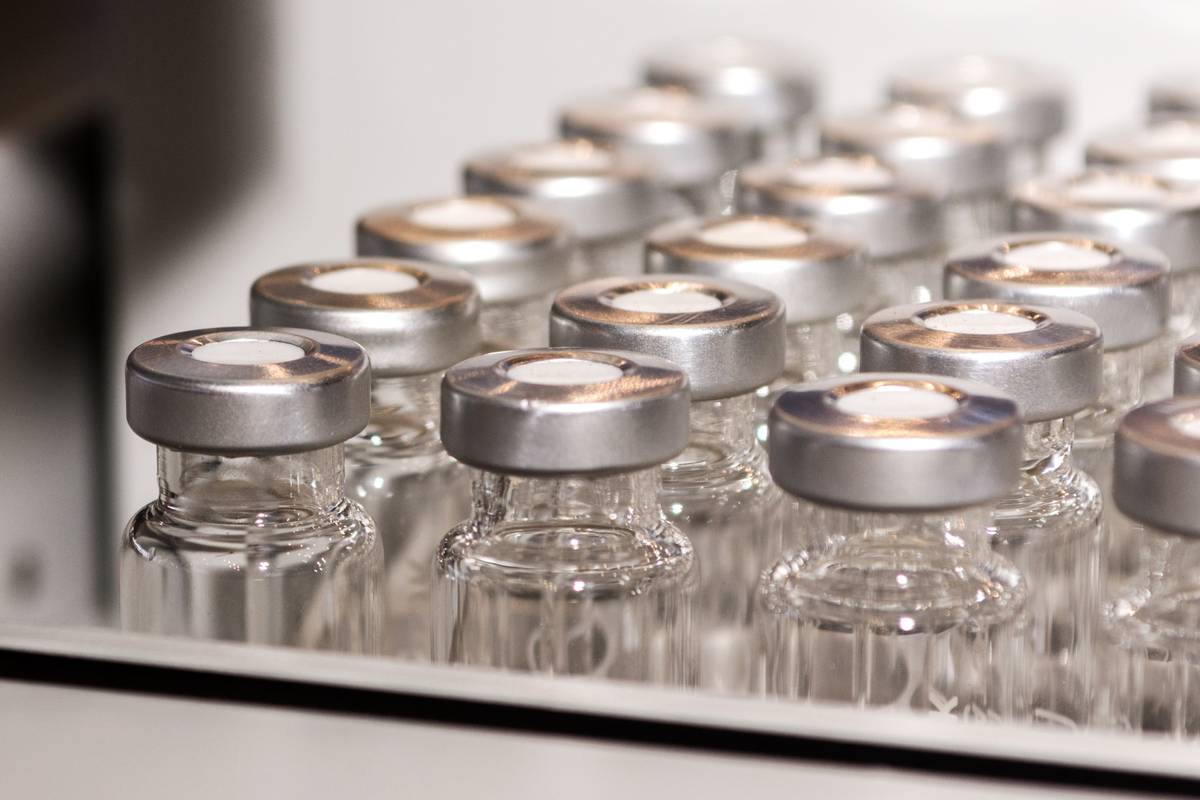Vaccine and Therapeutic Storage at Room Temperatures
Game changing technology provides stable long-term storage of vaccines and biologics at ambient temperatures

Background
Vaccines are temperature sensitive biologics and the vast majority of vaccines must be stored between 2-8°C from the point of manufacture to the point of use (the “cold chain”). The introduction of new vaccines such as COVID-19 vaccines combined with a push to expand immunization programs is putting an unprecedented strain on existing cold chain delivery systems that have not changed in decades.
In recent years, researchers have worked to create thermally stable vaccines. One approach has been to engineer vaccines that can maintain their thermal stability without preservative adjuvants. While promising, these engineered vaccines are labor intensive, still have relatively short shelf lives (a few days) when stored at elevated temperature, and each newly developed vaccine must individually obtain governmental approval. Another common strategy for vaccine stabilization is the addition of preservative adjuvants and glass forming sugars or polymers, coupled with freeze drying, foam drying, or spray drying. All these techniques require long processing times and some of the formulations require multiple adjuvants that can increase the cost and complexity of the vaccine product. There is a need for new techniques to produce thermally stable vaccines that can overcome these challenges.
Technology Overview
UNC Charlotte researchers have developed a new processing technique, light-assisted drying (LAD), to prepare vaccines for dry-state storage at ambient temperatures. Vaccine antigens are suspended in a small volume (40 μL) droplet of trehalose solution. This droplet is then irradiated with a near-IR laser that selectively heats water in the sample to accelerate drying. The laser allows for careful control of energy deposition into the sample and this provides control of sample temperature during processing so that thermal damage can be avoided. As water is removed, the trehalose forms an amorphous solid protective matrix. LAD is a one step process that can dry samples suitable for storage in less than 60 minutes. The process avoids extreme temperatures and pressures like freeze drying, foam drying, and spray drying. Furthermore, fiber delivery and/or beam shaping of the laser light could enable rapid in-line processing of multiple samples with this technique.
Technology Readiness:
The researchers have successfully performed proof-of-concept studies in our lab to assess the speed and repeatability of the LAD process and to measure the impact of processing on an embedded biologic (lysozyme). The functionality of lysozyme in each sample was measured after processing and storage and the thermodynamic properties of lysozyme was analyzed immediately after LAD processing using Differential Scanning Calorimetry (DSC) to access damage to the secondary and tertiary structures of the protein. The researchers found the protein did not show significant degradation in activity or thermodynamic properties immediately after processing and there was no marked decline in protein functionality seen after 1 month of storage at ambient temperature.
Publications:
Young, M. A., Antczak, A. T., Wawak, A. T., Elliott, G. D. & Trammell, S. R., “Light-assisted drying for protein stabilization,” J. Biomed. Opt. 23(7) 075007 (2018).
Young, M. A., Furr, D. P., McKeough, R. Q., Elliott, G. D., & Trammell, S. R. “Light-assisted drying for anhydrous preservation of biological samples: optical characterization of the trehalose preservation matrix,” Biomedical Opt. Express, 11(2), 801-816 (2020).
Benefits
- Preservation of vaccines at near ambient temperatures that could eliminate the need for cold chain storage and distribution.
- Can be applied to a range of vaccines including those that containing adjuvants that make freeze drying difficult.
- Avoids extreme temperatures and pressures during vaccine processing.
- Rapid in-line processing of multiple batch samples possible with this technique.
- Also applicable to the thermal stabilization of protein-based therapeutics and assays.
Applications
- Vaccine storage
- Vaccine distribution
- Stabilization of protein-based therapeutics and assays
- Cold chain replacement
Opportunity
UNC Charlotte is looking for a commercial partner to bring this technology to market. Exclusive patent license available with flexible and favorable terms.